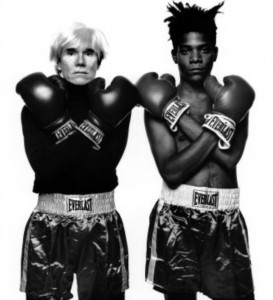 I recently read Justin Simien’s piece posted on the CNN website from February of this year: 5 things to know about black culture now. He discusses a scene from his movie, Dear White People, where the lead character is asked to write an opinion piece for the college newspaper on black culture.
I recently read Justin Simien’s piece posted on the CNN website from February of this year: 5 things to know about black culture now. He discusses a scene from his movie, Dear White People, where the lead character is asked to write an opinion piece for the college newspaper on black culture.
Lionel’s dilemma is one many black Americans share: a deep desire to have an identity rooted in black culture coupled with the knowledge that what’s seen as “authentically black” in popular culture doesn’t reflect our actual experience.
Wait, black people have an “actual experience”? What does this mean?
What is black culture?
Black culture, sans quotes, is the sum total of cultural contributions to the mainstream by the black subculture. It’s a fluid and a multifaceted, often contradictory thing.
Meanwhile “Black Culture” is a lifestyle standard made of assumptions about black identity, often used successfully by marketers, studio heads, fashion brands and music labels to make money.
I started to wonder about “white culture”. Once again, I headed to social media for answers, asking my Facebook friends: what are the current components of white culture?
The answers were numerous and diverse. Here’s an anonymous sampling.
- Anger?
- Angst about not having a culture
- A love of stuff?
- I know it’s a digression, but is there a white culture? I figure the local dominant group self-identifies in sub-groups: liberal/progressive, religious/secular rich/poor etc.
- Ranch dressing
- Owning a home to complain about the upkeep of
- Home Depot on a Saturday morning
- Curio cabinets
- Mumblecore
- High Sierra Music Festival
- Shit, in 2014 you could say a component to white culture is hip hop shows.
- WTF – the white culture is more blended now – at my house – Chinese, Filipino, Cambodian, Black, Indian, and same sex partnership. What White Culture.
- School shootings
Another insight from Texas rapper Dubwerth: “You almost have to dissect the
sub-cultures within white culture to get a more accurate breakdown. You have your typecast Hillbilly hick and these typecasts range all the way up to the high-nose rich white snob.”
So the definitions of both white and black culture stem from what we see people doing out and about and how they’re portrayed in the media. And millions of other people of the given race don’t fit the particular image we see.
Has black culture caught up with white culture in the American “melting pot” of social organization? Is the food, music, rules of behavior, language, arts, and literature blended (enough) that we can finally say there is a strong American culture?
We don’t yet live in a post-racial society. In addition to recognizing blatant, racially motivated acts of violence and prejudice, white people still need to know 18 things before discussing racism. And of course anyone, regardless of race, can be prejudiced. At least we now live in a time where depictions—on the street and in the media—are moving baby step by baby step towards something resembling reality.
